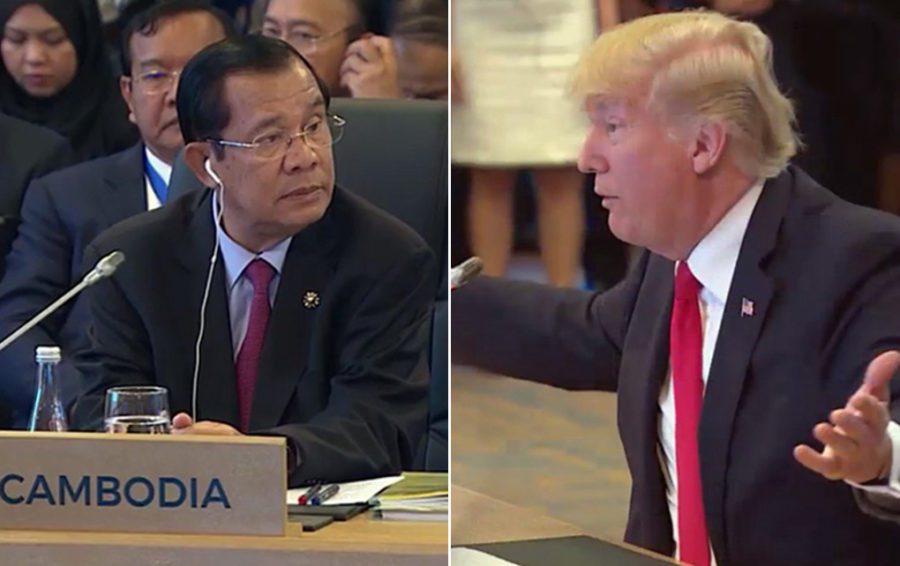The U.S. State Department said it was “deeply troubled” by the death of a former opposition official in detention amid a wave of judicial harassment against ex-members of the Cambodia National Rescue Party (CNRP).
More than 70 CNRP activists have been called in for questioning by police and the courts in Battambang, Kompong Thom, Kampot and Banteay Meanchey provinces since Prime Minister Hun Sen in March ordered authorities to “see one, beat one” if they found public meetings being held by former opposition members.
In April, the corpse of ex-CNRP official Tith Rorn, 37, was returned to family members covered in bruises and with an apparent broken neck just three days after he was arrested for an old intentional violence charge. Police said he was having alcohol withdrawal symptoms and fell over.
“The United States is deeply troubled by the death of Cambodia National Rescue Party (CNRP) member Tith Rorn while in police custody and calls for an immediate independent investigation into the events leading to his arrest and death,” the U.S. statement, released by department spokeswoman Morgan Ortagus on May 17, said.
“We are also concerned about the recent judicial proceedings initiated against more than 65 members of the CNRP.”
Court questioning against 35 of the officials in Battambang have so far focused on whether they met up at ex-CNRP commune chief Sin Chanpeou Rozeth’s noodle restaurant.
Ruling party spokespeople could not be reached for comment.
However, the government-aligned Fresh News published a “letter” rebuking the U.S. statement on May 19 under the name Chao Chaksmok, which has been frequently used for attacks against the opposition and civil society.
“As a Cambodian, I would like to say thank you to the American officers at the U.S. State Department, including officials at the U.S. Embassy to Cambodia, who expressed regret at the death of Cambodian Tith Rorn,” the letter said.
“But why does the death of this Khmer person make high-ranking U.S. officials, [including] from the embassy of this powerful country, express so much sympathy while other deaths get no attention?”
The letter went on to accuse the CNRP — many of whose top leaders have fled abroad — of orchestrating foreign pressure against Cambodia.
“This is the skill that the opposition has practiced for a long time: kneel down to foreign countries to destroy Cambodia,” it said.
ASEAN Parliamentarians for Human Rights, a regional alliance that includes former CNRP deputy head Mu Sochua, also highlighted Rorn’s case earlier this month as an “egregious case” of the government’s attacks on the opposition.
“The widening harassment of the opposition in Cambodia must end immediately. Authorities continue to rely on a range of tactics — including arbitrary arrests and trumped-up criminal charges — to target those supporting the CNRP,” said Charles Santiago, the group’s board chairman and a lawmaker in Malaysia.
The Supreme Court dissolved the CNRP in November 2017, nine months before a national election, over charges of colluding with foreign powers to overthrow the government.
Former opposition leader Kem Sokha, who had been arrested two months prior, remains under house arrest.
The U.S., in last week’s statement, reiterated its call for the release of Sokha.
“We urge the Cambodian government to remove undue political restrictions on all persons in Cambodia and to release those prisoners who have been arbitrarily or unlawfully detained, including Kem Sokha,” it said.
“We also urge the Cambodian government to support genuine multi-party democracy and ensure its actions and laws comply with Cambodia’s human rights obligations under international law.”
The U.S., along with the European Union (E.U.), is reviewing tariff-tree trade with Cambodia due to concerns over the country’s political developments.
(Translated and edited from the original article on VOD Khmer)












